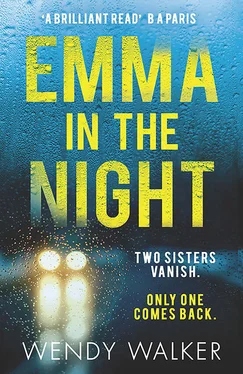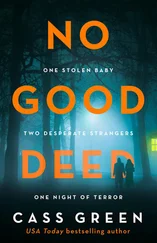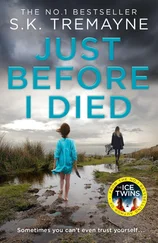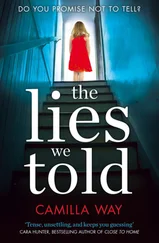I let Emma convince me to betray our mother during the divorce. She could see the next move of every player on the board. She could change their course by changing her own. She was responsive, adaptable. And she was never committed to any particular outcome except her own self-preservation.
Cass, we need to live with Daddy. Don’t you see? He will be so sad without us. Mom has Mr. Martin. Dad only has us. Do you understand? We have to do something and do it now! Or it will be too late!
Emma didn’t have to tell me this. I understood all of it. Our mother’s boyfriend, Mr. Martin, moved into our father’s house the second our father moved out. His son, Hunter, went to boarding school, but he lived with us when he came home for vacations and weekends, and he came home a lot. Mr. Martin’s ex-wife had moved to California a long time before we ever knew them. Mr. Martin was “semiretired,” which meant he’d made a lot of money and now played a lot of golf.
I could see that our mother never loved our father, Owen Tanner. She ignored him so glaringly and with such indifference that it became difficult just to look at him, to look at the pain that radiated from his body. So, yes, our father was sad.
I told Emma that I could see our father’s sadness. What I didn’t tell Emma was that I could see other things as well. I could see the way Mr. Martin’s son looked at Emma when he came home from school, and the way Mr. Martin looked at his son looking at Emma, and the way our mother looked at Mr. Martin when he was looking at them. And I could see that this was going to result in a bad future.
But seeing the future is a worthless gift if you don’t have the power to change it.
And so when the woman from the court asked me, I said I wanted to live with my father. I said that I thought things would be bad in our house with Mr. Martin and his son. I think Emma was surprised by my courage, or perhaps taken aback at what she perceived to be her influence over me. In any case, when I made this move on the board, she adjusted her course and sided with our mother, sealing forever her position as the most favored child. I never saw it coming. Everyone believed her and no one believed me because I was only eleven and Emma was thirteen. And because Emma was Emma and I was me.
Our mother was irate because the people I had told this to could have made it so that we didn’t have to live with her. How could she be the best mother in the world if she didn’t have any children left? When she finally won, I found out just how angry she was.
After everything I’ve done for you! I knew you never loved me!
She was wrong about that. I did love her. But she never brushed my hair again.
And don’t ever call me Mother again! To you, I’m Mrs. Martin!
After the dust had settled from the divorce, Emma and our mother would dance together in the kitchen as they baked chocolate cake. They would laugh hysterically at YouTube videos of cats playing the piano or toddlers walking into walls by mistake. They went shopping for shoes on Saturdays, watched Real Housewives on Sundays. And they fought almost every day, loud, screaming, swearing fighting—the kind of fighting that seemed to me, even after years of watching them, to be terminal. But the next day, sometimes the same day, they would again be laughing as if nothing had happened. No apologies were made. No discussions about how they could get along better. No boundaries for the future. They would just carry on.
It took me a long time to understand their relationship. I was always willing to pay the price for her love, whatever price she decided to set. But Emma knew something I didn’t. She knew that our mother needed our love as much as we needed hers, maybe even more. And she knew that if she threatened to take it away, to raise the price on her affection, our mother would be willing to negotiate. Back and forth, they made their trades, resetting the terms almost daily. And always looking for ways to improve their power at the bargaining table.
I became the outsider. I may have been beautiful, as my mother said, but I was beautiful like a doll, like a lifeless thing people look at once before moving on. Emma and our mother had something else, something that drew people in. And so they were fierce competitors in their secret club, for each other’s love, for the love of everyone around them. And all I could do was watch from a distance, one short enough that I could see the escalation. Two nation-states in a constant battle for power and control. It was unsustainable. And so it continued, this war between my mother and my sister, until the night we were gone.
I remember the feeling I had the day I returned. Having made my way to Mrs. Martin’s house—to my house, I guess (though it did not feel like my house after being away for so long)—on a Sunday morning in July, I stood frozen outside in the woods. I had thought about my return relentlessly for three years. Memories had filled my dreams at night. Lavender soap and fresh mint in cold iced tea. Chanel No. 5. Mr. Martin’s cigars. Cut grass, fall leaves. The feel of my father’s arms around me. Fear had run away with my thoughts during the day. They would all want to know where I’d been, and how I came to be missing. And they would want to know about Emma.
The night we disappeared haunted me. Every detail played over and over and over. Regret lived inside my body, eating me alive. I had thought about how to tell them, how to explain it. There had been time, too much time, to construct the story in a way they would be able to comprehend. I had thought it through, then unraveled it, then thought it through again, self-doubt and self-loathing erasing and rewriting the script. A story is more than the recounting of events. The events are the sketch, the outline, but it is the colors and the landscape and the medium and the artist’s hand that make it what it is in the end.
I had to be a good artist. I had to find talent where none existed and tell this story in a way they would believe. I had to set aside my own feelings about the past. About my mother and Emma. Mrs. Martin and Mr. Martin. Me and Emma. I loved my mother and my sister in spite of my selfish, petty feelings. But people don’t understand any of that. I had to not be selfish and foolish. I had to be the person they wanted me to be. I had nothing with me but the clothes on my body. I had no evidence. No credibility except for the fact of my own existence.
I stood frozen in the woods, filled with terror that I would fail. And there was so much at stake. They had to believe my story. They had to find Emma. And to find Emma, they had to look for her. It was all on me, finding my sister.
They had to believe me that Emma was still alive.
TWO
Dr. Abigail Winter, Forensic Psychologist, Federal Bureau of Investigation
Abby lay in bed, staring at the ceiling, contemplating the extent of her defeat. It was six o’clock on a Sunday morning, mid-July. The sun was up, pouring light into her room through sheer curtains. Her clothes were strewn across the floor, shed in an effort to find comfort in the thick summer heat. The air conditioner had begun clanking again, and she’d chosen quiet over cool. But now even the sheets felt like a burden against her skin.
Her head pounded. Her mouth was dry. The smell of scotch from an empty glass turned her stomach. Two drinks at midnight had overpowered her restless mind and brought her a few hours of relief. And a hangover, apparently.
At the foot of the bed, a dog moaned and raised his head.
“Don’t look at me like that,” she said. “It was worth it.”
Three hours would get her through a day of catching up on paperwork. She had reports due on two cases and corrections to a deposition she’d given back in February—as if she would have any memory of what she’d said that long ago about anything.
Читать дальше












